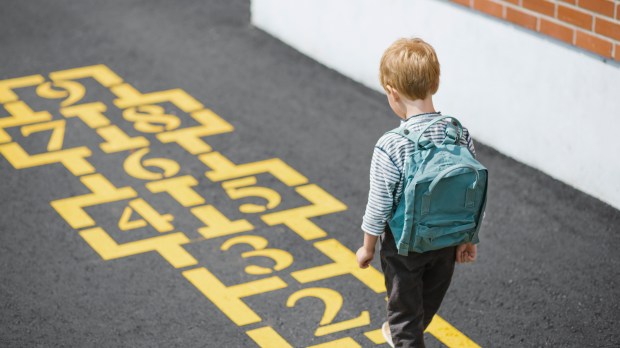Your son comes home from school with a new word that his friend taught him. Your little girl’s playmates are teaching her to be a little bit sassier than you’d like. Or maybe your child was caught cheating on a test with his friend, even though you know you’ve taught him better.
4 brilliant parenting moves you’re already making
As parents well know from living through our own childhoods, the influence of our kids’ friends is pretty powerful, especially when when they’re young (even as young as 3 and 4 years old) and still learning. The knee-jerk might be to yank away time with friends and put restrictions up, but that may be more of a Band aid fix to the real problem. Our children will copy the behaviors of those who they are closest with. However, if we have great, strong connections with them as parents, then the connection and influence of their peers won’t be as influential.
We asked Dr. Gregory Popcak, director of the Pastoral Solutions Institute, author of the parenting guide Discovering God Together, for advice on how to help our children when their friends are bad influences, and how to help our kids become influential leaders in their own peer groups!
Step 1: Schedule meaningful family time
Trouble starts when school, sports, and errands keep us too busy and push family time out of the way. Dr. Popcak suggests that parents “make sure to carve out daily and weekly time to connect with their kids around working together, playing together, talking together, and praying together.” He says family time has to have top priority in the calendar if we want to make any difference in our kids behaviors.
Step 2: Coach children on how to handle tough peer situations before a problem arises
If we find out that our kids are dealing with a hard situation and we can’t just remove them from it, Dr. Popcak recommends introducing role playing into conversations. “Ask your child: ‘What do you wish you could make happen in that situation?’ Parents can then play the role of the friend and coach their child on how to make the result they want happen.” Dr. Popcak also says to make sure to let our kids know when to get an adult for help. When we coach our kids and give them good advice before a situation becomes a problem, we become the experts that our children want to turn towards in tough times.
Step 3: Exercise spiritual parenthood towards your kids’ friends
In the early years, parents have quite a bit of influence and control over who their child spends time with. After all, toddlers can’t arrange their own play dates! But as kids continue to grow, they will need their own freedom to create their own friend groups. Dr. Popcak advises that when our kids reach a certain age, there is one factor that makes a huge difference in the types of friends they choose. He says, “Make your home the home where your kids’ friends want to hang out. Don’t be the parent who buys beer, of course, but do be the parent who has the games they like to play and the refreshments they enjoy.”
6 fun Lent activities and crafts to do as a family
Dr. Popcak recommends exercising spiritual parenthood towards our kids’ friends since children learn habits from their peers. “When your kids see that their friends respect you, that makes it even more likely that they will see you as a person whom they can turn to for advice on dealing with tough social hangouts.”

